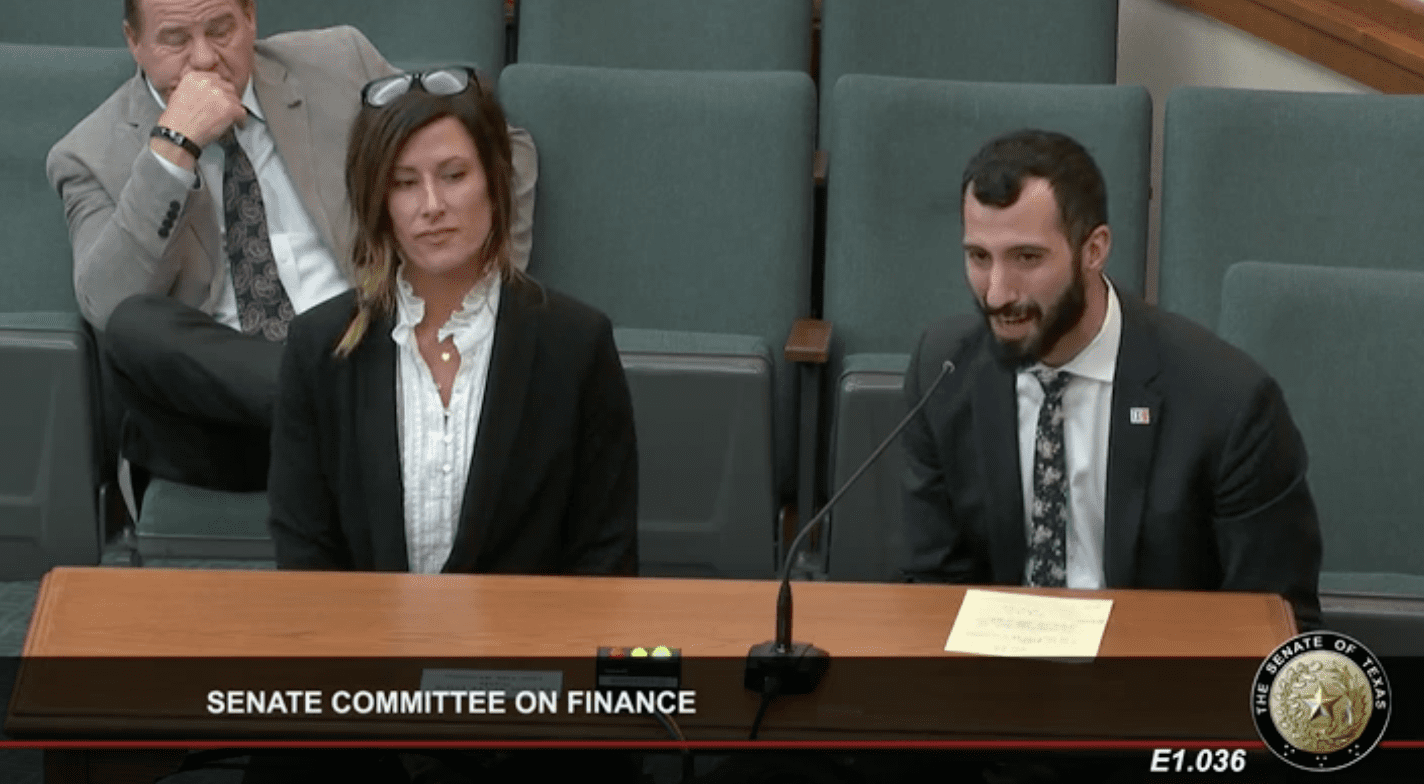Kudos to budget writers for pay raises at TDCJ
Texas 2036 Policy Advisor Luis Soberon applauded budget writers for including “significant pay raises” in their base budgets for Texas Department of Criminal Justice staff in Thursday testimony before the Senate Finance Committee.
“The correctional officers and parole officers are at historic turnover rates,” Soberon said. “Retention, as you’ve heard again and again, is an ongoing challenge and those pay increases are going to go a long way to stemming that problem.”
He also addressed another proposal backed by Texas 2036 — investing substantially in climate control systems in TDCJ facilities.
- Of the 133,000 beds that TDCJ has online, he said, only 41,000 of them actually have air conditioning.

“Not only is it a problem for the incarcerated Texans who have to deal with heat-related illness and, you know, often fatal consequences, but also for the staff,” Soberon said. “The correctional staff testified before the House and they likened it to running up and down stairs in a football stadium in the middle of July in a winter coat — not pleasant — and they attested to how retention would be greatly helped by investing in climate control systems.”
Investments, reforms at TCOLE
Soberon also called the Senators’ attention to the Texas 2036 report released in November on the serious need to support an improved data capacity and infrastructure at the Texas Commission on Law Enforcement. The report looks at the issue of wandering officers, defined as a law enforcement officer who is fired or resigns in lieu of getting fired, and is then rehired to work in law enforcement at another agency. The report also calls for reforms in the preparation of law enforcement officer separation reports, calling for changes in the separation categories and for information to be publicly available.
“One of the big recommendations that we came to,” Soberon said, “was that we need to substantially invest in TCOLE’s infrastructure and in its personnel.
He added that Texas has more law enforcement agencies than any other state. “Not officers, but agencies,” he said. “And that’s a substantial regulatory burden. The men and women in TCOLE deserve more to serve [those] that serve us.”
